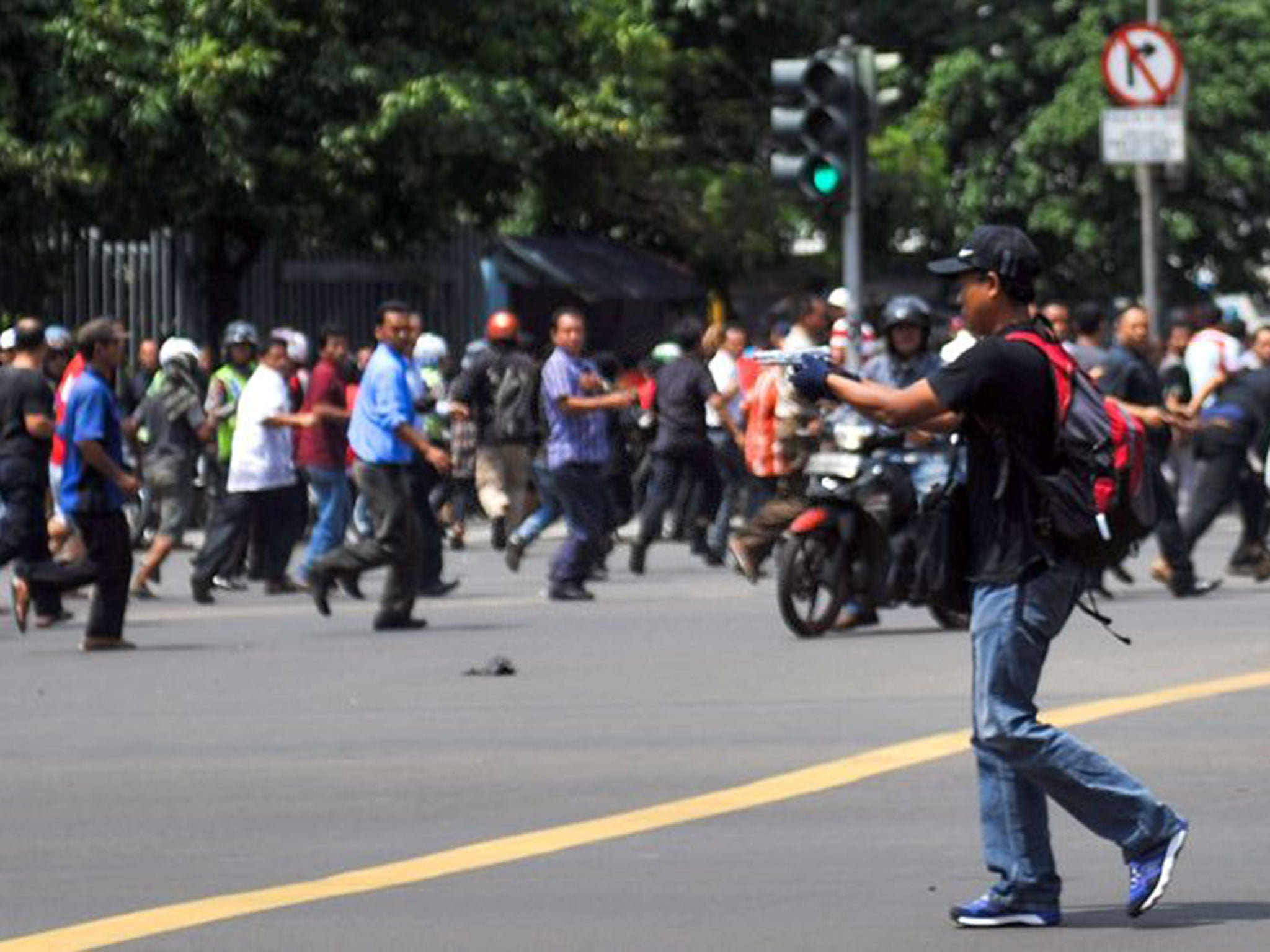Jakarta attacks: After Paris and with jihadis being killed in Syria, the Indonesian capital was waiting for this
In 2014 the country’s best-known Islamist cleric, Abu Bakar Bashir, pledged allegiance to Isis from his jail cell, prompting a surge in support for the organisation


Your support helps us to tell the story
From reproductive rights to climate change to Big Tech, The Independent is on the ground when the story is developing. Whether it's investigating the financials of Elon Musk's pro-Trump PAC or producing our latest documentary, 'The A Word', which shines a light on the American women fighting for reproductive rights, we know how important it is to parse out the facts from the messaging.
At such a critical moment in US history, we need reporters on the ground. Your donation allows us to keep sending journalists to speak to both sides of the story.
The Independent is trusted by Americans across the entire political spectrum. And unlike many other quality news outlets, we choose not to lock Americans out of our reporting and analysis with paywalls. We believe quality journalism should be available to everyone, paid for by those who can afford it.
Your support makes all the difference.Jakarta has been braced for the sort of attack it witnessed on Thursday. After the Paris attacks in November, security experts warned of dangers to Indonesia from fighters returning from the Middle East.
Sidney Jones of the Jakarta-based Institute for Policy Analysis of Conflict warned in November: “The Paris attacks could swing attention back to [attacking international targets]. We’re seeing more Indonesians die in coalition air strikes [in Syria]… and when we see those kinds of deaths taking place we have to see revenge as a possible motive.”
Nine people with alleged links to Isis were arrested in December 2015 with authorities claiming to have foiled attacks planned for the Christmas and New Year period.
Anton Charliyan, a national police spokesperson, said that security services had received warnings from members of the group that “Indonesia will become international news”.
Nearly 90 per cent of Indonesia’s 250 million population are Muslims, but the mainstream of the religion in the country has for many decades followed a softer, more tolerant line than the Wahhabi fundamentalists whose fanaticism underpins Isis and other extremist groups. This was seen as a necessity for social harmony, given the presence of large Indonesian minorities owing allegiance to other religions, including Hinduism and Buddhism. And two weeks after the Paris attack, a long-established Indonesian Muslim organisation, Nahdlatul Ulama, came out fighting against the fanatics, launching a feature-length film designed to win over Muslims across the world tempted by the Isis ideology.
Over film of Isis prisoners being shot in the head and dumped in a river, the film’s soundtrack declares: “Many who memorise the Koran… love to condemn others as infidels while ignoring their own infidelity to God, their hearts and minds mired in filth.”
Yahya Cholil, general secretary of the organisation’s supreme council, said: “We are directly challenging the idea of Isis, which wants Islam to be uniform, meaning that if there is any other idea of Islam that is not following their ideas, those people are infidels who must be killed. We will show that is not the case with Islam.”
But the authorities are up against a persistent threat. One region of the country, Aceh, devastated by the 2002 tsunami, has adopted Sharia law, and recently staged the public flogging of an unmarried woman allegedly “too close” to a male friend.
The Indonesians known to have returned from fighting in the Middle East number fewer than 300, but memories of well-funded and motivated violent jihadi movements are raw and recent.
Many Indonesians travelled to Afghanistan in the 1980s and joined mujahedin groups fighting against the Russian occupation. Subsequently, veterans returning from there formed the al-Qaeda-sponsored Jemaah Islamiyah network, which carried out the massive bombing in Bali that killed more than 200 people in 2002. In 2009 members of the same group attacked Jakarta, with suicide bombers in two international hotels killing seven people.
Since then the US-funded counterterrorism police, known as Detachment 88, have cracked down hard on the organisation, leaving it fragmented and poorly financed. But Isis and the war in Iraq and Syria have offered the jihadis new hope and new funds.
In 2014 Indonesia’s best-known Islamist cleric, Abu Bakar Bashir pledged allegiance to Isis from his jail cell, prompting a surge in support for the organisation. Since then, security experts say the terrorist threat has been growing again.
The attacks provoked a worried reaction in other Muslim-majority countries, with Malaysia raising its threat level to the highest possible, and Pakistan premier Nawaz Sharif sending condolences and warning that other countries faced similar dangers.
Join our commenting forum
Join thought-provoking conversations, follow other Independent readers and see their replies
Comments